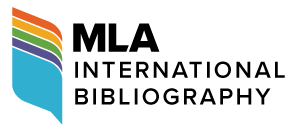Regional literature as an object of study: local literary memories
DOI:
https://doi.org/10.36798/critlit.i30.528Keywords:
literary theory, literary history, cultural heritage, regional literatureAbstract
The following essay synthesizes different definitions of regional literature from three perspectives: sociocultural location, the use of specific language codes and reference to a specific cultural heritage. On the other hand, by linking a spatial variable and another historical-temporal variable in the definition of literature (for example, if a regional literary history is conceptualized, which is the orientation that the essay follows), the epistemological problem refers to theoretical-methodological reflections from literary studies. , language sciences and social sciences, to generate complex definitions of regional literature, which at the same time transcend the center versus margin paradigm typical of sociocultural histories. Thus, by reviewing different theoretical propositions (coming from the aforementioned fields: literary studies, language sciences and social sciences), the use of the term literary memory is proposed as a category that would allow the understanding of literary expressions, in addition to the speeches and textual archives of a region, without depending on the institutional control of their interpretation, or on aesthetic value judgments about these expressions, but which participate in the development of the heritage and cultural memory of a community.
Downloads
References
Aurell, Jaume. La escritura de la memoria. De los positivismos a los postmodernismos. Universidad de Valencia, 2017.
Beltrán Almería, Luis. “Antiguos y modernos en la historia literaria”. Teorías de la historia literaria, compilado por Luis Beltrán Almería y José Antonio Escrig, Arco Libros, 2005, pp. 9-21.
Burke, Peter. ¿Qué es la historia cultural? Paidós, 2014.
Candido, Antonio. “La literatura y la formación del hombre”. Ensayistas brasileños. Literatura, cultura y sociedad, coordinado por Regina Crespo y Rodolfo Mata, Universidad Nacional Autónoma de México, 2005, pp. 533-552.
____. Literatura y subdesarrollo. Siglo XXI Editores, 1982.
Casa, Arturo. “El eje local-mundial como reto para la Historia Literaria”. Tropelías. Revista de Teoría de la Literatura y Literatura Comparada, no. 15-17, 2006, pp. 43-58, https://doi.org/10.26754/ojs_tropelias/tropelias.200415-17503
Clark de Lara, Belem. Letras mexicanas del siglo XIX. Modelo de comprensión histórica. Universidad Nacional Autónoma de México, 2009.
Deleuze, Gilles, y Félix Guattari. Kafka. Por una literatura menor. Siglo XXI Editores, 1975.
Durand, Gilles. La imaginación simbólica. Amorrortu, 2007.
Guha, Ranahit. Las voces de la historia y otros estudios subalternos. Crítica, 2002.
Halbwachs, Maurice. La memoria colectiva. Prensas Universitarias de Zaragoza, 2004.
Jauss, Hans Robert. La historia de la literatura como provocación. Gredos, 2013.
Kermode, Frank. “El control institucional de la interpretación”. El canon literario, coordinado por Enric Sulla. Arco Libros, 1998, pp. 91-114.
Martínez, José Luis. La expresión nacional. Consejo Nacional para la Cultura y las Artes, 1993.
Morgan Hernández, Tonatiuh. “La construcción de la conciencia histórica en la literatura regional de Baja California Sur: El retorno de la hoguera de Omar Castro”. Meyibó, no. 21, ene-jun. 2021, http://dx.doi.org/10.17613/fzkg-pc87
Pesavento, Sandra Jatahy. História & História Cultural. Auténtica, 2013.
Reyes, Alfonso. El deslinde. El Colegio de México / Fondo de Cultura Económica, 1944.
Roffé, Reina. Autobiografía armada. Corregidor, 1973.
Sousa Santos, Boaventura de. Una epistemología del Sur. La reinvención del conocimiento y la emancipación social. Siglo XXI Editores / CLACSO, 2009.
Downloads
Published
How to Cite
Issue
Section
License
The authors always maintain the moral and patrimonial rights of their work. They only grant the non-exclusive license of use to Connotas for their first publication. Therefore, the authors may make other independent and additional contractual agreements for the publication of their article, review or other text originally published in Connotas or with modifications (including the title) as long as they clearly indicate that the paper was first published in Connotas. Revista de crítica y teoría literarias. Connotas undertakes not to make commercial use of the texts it receives or publishes.
See also "Copyright and Licences".





